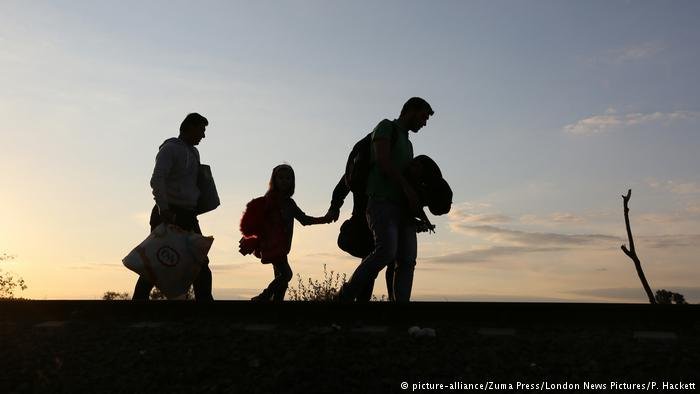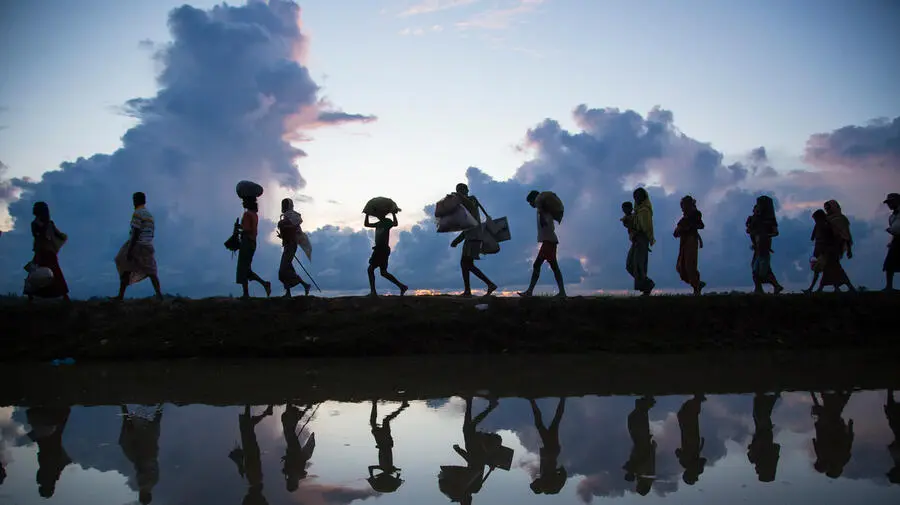Table of Contents
Refugee and Migrant Communities in the UK Challenge
Refugees are often on the receiving end of philanthropic giving. However, refugee and migrant communities in the UK also provide sizeable charitable donations and aid, as highlighted in recent studies.
In this blog post, Madiha Sadiq and Olivia Everett argue donations by refugee and migrant communities in the UK should be better valued, celebrated, shared and most critically, supported.

A burden?
Stances against migrants and refugees are often based on a nexus of nationalist opposition and economic rationalisation.
These perspectives are often hinged on the traditional notions of the refugee as a ‘guest’ or a ‘burden’ on the state and taxpayers, in addition to fears of diluting the nation’s identity and values by welcoming too many migrants and refugees.
However, refugees and internally displaced persons (IDP) often give remittances to support other refugees/IDPs in other countries and/or family and friends at home – for many families in need, this is an economic lifeline.
Financial support of this kind alleviates some of the pressure on governments to provide official aid to developing countries.
In fact, combined with remittances from migrants in general, total remittances are several times larger than formal international development aid.
Financial remittances are also shown to be more stable than private debt and portfolio equity.
In additional to financial remittances, refugees and migrants also provide social remittances.
Social remittances from transnational communities entail the transfer of skills, knowledge and ideas.
The recipients of such remittances extend beyond the migrants’ immediate family and friends thereby having a greater social impact due to the benefits being enjoyed by more people.

Challenging anti-refugee narratives
This is all despite refugees (and many migrants in general) often living under heavy financial constraints.
This challenges the ideas of the nationalist and economics based opposition to refugee presence in the UK.
Rather than “sponging off the government and taxpayers” and “living comfortable lives” while the UK’s nationals are “left to suffer” and endure a “lesser quality of life”, as some argue, the reality of refugees often paints a different story.
Evidence on remittances (and by refugees specifically) is limited and often conflated with research on migrants in general.
It is for this reason that it is important to remember that a refugee’s reason for relocating is not economic, and their challenges will most likely differ from that of economic migrants.
However, it is recognised that the remittances both of these groups makes are used in similar ways: daily subsistence needs, healthcare, housing, education and other basic needs.

How can we help?
By understanding and celebrating the contributions refugees and migrants make despite their own hardships (rather than wrongfully vilifying their presence), we can better aid their integration in the UK.
Charitable activities by refugees and migrants can best be supported by a number of means, such as the introduction of tax-breaks, aiding in post-conflict recovery, as well as assistance with voluntary return to post-conflict societies.
Most importantly though, it is a matter of changing perceptions.
Refugees have a lot to offer to our societies.
It is crucial to highlight these contributions to the general UK population in order to combat misinformation surrounding refugees and migrant communities.
Learn about HAD’s research into Domestic Programming
Further Reading:
How migrants who send money home have become a global economic force
Alternatives to Aid: Mobilisation for Development
Co-written by Madiha Zeb Sadiq
Research and Development Assistant
& Olivia Everett
Research and Development Intern





